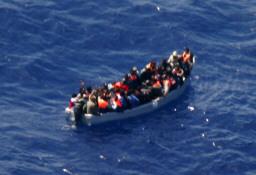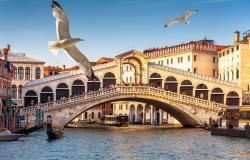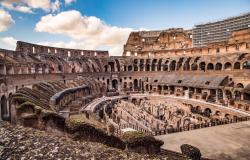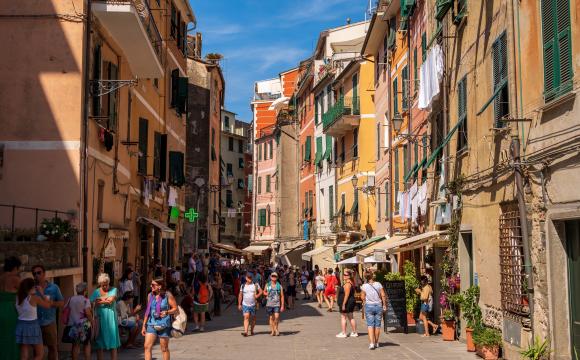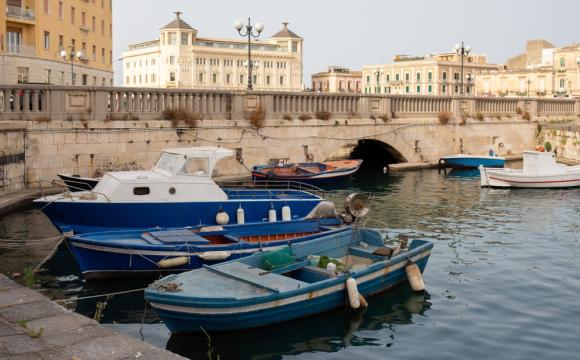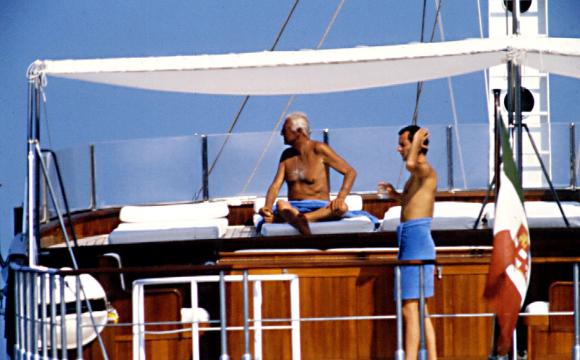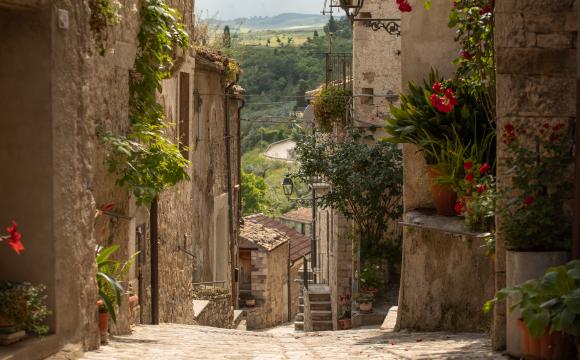An Italian ship rescued 350 boat migrants off the coast of Libya this weekend but over 200 are still missing and believed dead, after high winds and stormy seas caused their vessel to capsize, it emerged on Tuesday.
The International Organization for Migration (IOM), the Italian coastal guard and Libyan authorities confirmed that 21 bodies had been pulled from the sea so far.
A further 23 people on board the capsized boat have been rescued but around 210 have been missing since Sunday, when the wreck occurred.
Rescue services continue to search the area where the boat went down but have said they are unlikely to find anyone else alive after two days in the water.
The two heavily overcrowded wooden boats set out from the Libyan coast on Saturday but were struggling to stay afloat by Sunday morning.
An Italian ship moored at a nearby Libyan oil platform responded to distress calls from one of the boats, which it was able to tow to safety.
Speaking on Tuesday, the ship's commander, Captain Francesco Barraco, said the boat had been dangerously overcrowded.
''There wasn't a single space free,'' he said. ''Every corner was jammed with immigrants. It looked like something you'd only see on television''.
The IOM's Tripoli representative Laurence Hart confirmed that 350 people on board had landed safely at the Libyan port on Sunday afternoon.
He said those on board were a mix of nationalities, including 66 Bangladeshi and 15 Syrians, as well as migrants from India, Pakistan, Egypt, Somalia, Ghana, Nigeria and Algeria.
There have also been reports that a further two vessels ran into problems on Sunday, although it has not yet been confirmed whether these boats have simply lost radio contact or even whether there were migrants on board.
Officials have confirmed that the capsized and rescued boats were both headed for Italy, one of the main gateways to Europe for migrants travelling from North Africa.
''This is the typical route for migrants from Libya to Italy,'' Hart said.
News of the wreck was greeted with shock on the part of religious and migrant groups in Italy and abroad.
The Italian Episcopal Conference (CEI), the assembly representing all the country's bishops, said it was ''deeply saddened'' by the reports.
''Anyone arriving in Italy should be provided with assistance and treated like a person,'' said CEI Secretary General Mariano Crociata.
The Italian Refugee Council said the wreck was not just a ''one-off serious incident'' but part of ''an ongoing tragedy, in which 6,000 migrants have lost their lives trying to reach Europe''.
The United Nations High Commissioner for Refugees, Antonio Guterres, expressed ''shock and great sorrow'' at the tragedy.
He said it was part of ''a global phenomenon in which desperate people take desperate measures to escape conflict, persecution and poverty in search of a better life''.
News of the incident broke as Italian Interior Minister Roberto Maroni once again promised that joint Libyan-Italian coastal patrols, expected to kick off in May, would put a stop to migrants travelling from Libya to Italy.
''We have done everything possible to end the landings. The Libyan government has agreed to begin patrolling the coasts with six motorboats from May 15,'' said the minister.
''On that day I expect the flow of people entering Italy from the Libyan channel to stop and the problem will be resolved''.
The joint patrols form part of a friendship accord between Rome and Tripoli signed in August 2008.
Maroni reminded reporters of the upcoming patrols again on Tuesday and added: ''It is always difficult to control the waters but even a simple patrol can act as a strong deterrent to human traffickers''.
But Maroni's comments were greeted with anger among some politicians, who said the Italian-Libyan accord was failing to deal with the problem.
''Migrants are continuing to depart from the Libyan coasts, often meeting a tragic fate,'' said Rocco Buttiglione, leader of the small opposition Catholic party, the UDC. ''This could not happen without connivance on the part of the Libyan authorities''.
Italian MEP Claudio Fava of the Left and Freedom coalition said: ''The Mediterranean has become a massive open-air graveyard, while the Italian government persists in its ruthlessness towards the survivors, with its harsh security policies''.
The Italian Refugee Council Director Christopher Hein said it made more sense to focus on the African countries migrants passed through en route to Europe.
''It is more important to assist these transit countries in their efforts to allow a certain number of migrants and refugees to stay and work legally there, rather than just investing in increasing border controls,'' he said.
''This has no effect other than diverting the problem from one border to another''.
According to figures released by the Italian interior ministry earlier this year, around 37,000 people landed on Italian coasts in 2008 - a 75% increase on 2007.
This is over half the total number of migrants who arrived in Europe by sea last year, which totalled around 67,000.
At least 124 migrants are known to have died at sea last year in five separate incidents while making the crossing from North Africa to Europe.
The weekend's wreck is the second known incident this year in which migrants crossing from North Africa have drowned. At least 21 people, many of them children, died in February when their overcrowded boat capsized near the Canary Islands.
